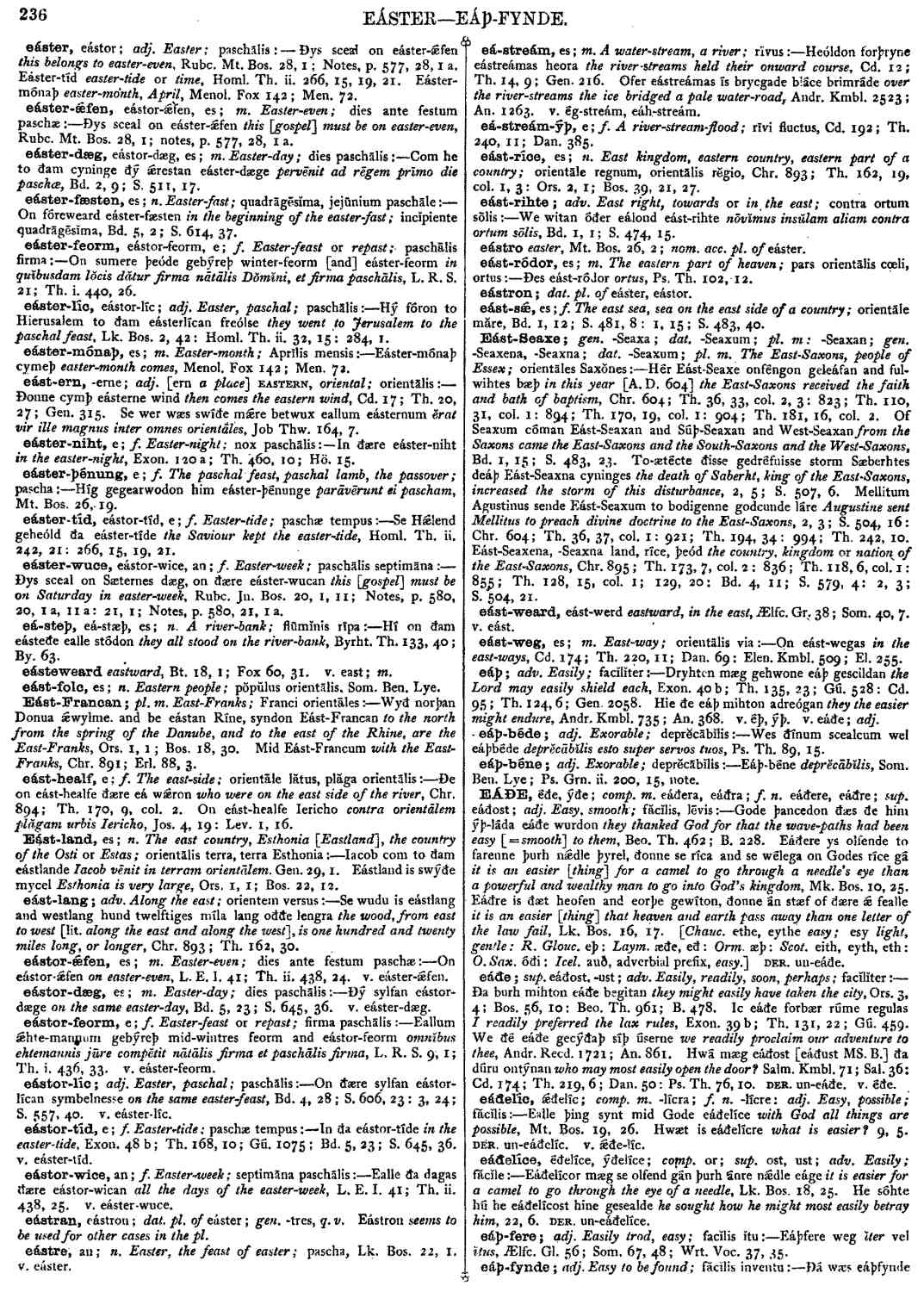eáðe
- adverb
-
Ða burh mihton eáðe begitan
they might easily have taken the city.
- Ors. 3, 4;
- Bos. 56, 10: Beo. Th. 961 ;
- B. 478 .
-
Ic eáðe forbær rúme regulas
I readily preferred the lax rules,
- Exon. 39 b ;
- Th. 131, 22;
- Gú. 459 .
-
We ðé eáðe gecýðaþ síþ userne
we readily proclaim our adventure to thee,
- Andr. Recd. 1721 ;
- An. 861 .
-
Hwá mæg eáðost [eáðust MS. B.] ða dúru ontýnan
who may most easily open the door?
- Salm. Kmbl. 71 ;
- Sal. 36: Cd. 174 ;
- Th. 219, 6;
- Dan. 50: Ps. Th. 76, 10.
Bosworth, Joseph. “eáðe.” In An Anglo-Saxon Dictionary Online, edited by Thomas Northcote Toller, Christ Sean, and Ondřej Tichy. Prague: Faculty of Arts, Charles University, 2014. https://bosworthtoller.com/8772.
Checked: 1